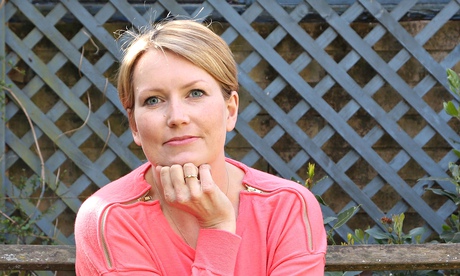
Many readers of this paper were deeply moved when an article appeared a few weeks ago by Jean Gross, describing the death of her 36‑year-old daughter Kate from colon cancer early on Christmas morning. The bereaved mother’s unflinching description of that day, with Kate’s twin five-year-old boys eager to open their stockings, while the lunch had to be made in between calls to the undertaker and quick returns to the bedroom to touch her dead child’s hand, gave a powerful impression of the tragedy they were living through, but also of the current of life it was borne on. A sense of life going on was what the dying woman wanted: on hearing that she was terminally ill, Kate Gross began writing the blog that is the basis for this book, a collection of reflections, advice and opinion that she could leave as a long memo to her husband and children, a celebration of the happiness they had together and her pleasure in thinking of its continuity without her.
Gross’s short life was admirably active and enviably happy. After an exotic childhood travelling the world with her parents and sister, and a “grub”-like adolescence of routine self-doubts, she emerged from Oxford with a first in English and joined the civil service. By 26 she was working at 10 Downing Street, writing policy documents and briefings for Tony Blair and Gordon Brown, and by her early 30s she was running Blair’s African Governance Initiative, a charity giving administrative and management support to a number of African countries, including Rwanda and Sierra Leone. She had also married “the best-looking man I’d ever kissed” and given birth to twins. Her disease seems to have targeted one of the most able and fortunate women of her generation, and every reader of this book will be appalled at the perversity of her fate.
But Gross herself seems not to have been floored by her early death sentence. One of her gifts was being “wired for happiness”, and while she is not above the occasional swipe at “you lucky sods with decades ahead of you”, she is much more concerned with trying to explain, or evoke, her own personality. She had always wanted to be a writer (as a child, she says, she wanted to be poet laureate and even scoped out Westminster Abbey for a possible final resting place), and writing about her predicament proved “a gift to myself, a reminder that I could create, even as my body tried to self-destruct”. Alert to the pitfalls of “cancer cliche” from the first, she clearly strove to make her voice distinctive, approaching her writing with the same competitive spirit that propelled her through professional life so rapidly.
Gross’s “can do” habit of mind extended to the “doing” of dying, too, such as these thoughtful tips to would-be well-wishers: “We don’t expect great words of wisdom or solace … Don’t make me feel as if this is the last time we will meet. The invalid craves normality, not exceptionalism.” And amid the lists and preparations, the reminiscences and sad sense of only having just begun to express herself, Gross’s wry humour comes to the fore. She laughs at herself for having over-organised everything about her demise (down to pre-recording bedtime stories for her sons) and comforts herself that the sparsely furnished attic room she has selected to die in will be easily transferable back to a repository for “white-goods guarantees and school reports” afterwards.
“Afterwards” is naturally, as the mother of such heartbreakingly young children, an area of deep concern and fascination for her. She writes about the arrangements she has made for enlisting friends and family to act as substitute mothers and supports for her husband, but admits that even the most organised and motivated control freak can only stamp their wishes on a limited patch of their own aftermath. And the prospect of her loved ones being happy in the future has a sting to it, which she is able to write about with droll honesty: “I want Billy to be happy and loved. I want someone to get the washing done, without the darks bleeding into the lights. If the two could combine in one washerwoman-cum-wife, ideally without my sparkling eyes and wit, perhaps I could look down on that content. But then I think about someone else … with my Billy, seeing my friends. I imagine her in my kitchen telling the boys off for some teenage incursion. My job. I am haunted by this non-existent woman.”
Separating the darks from the lights is one of her own great talents. Among the many things to appreciate in Gross’s honest, intelligent and deeply affecting book is her observation that the intensity of terminal illness makes it perversely animating, that only death, in other words, can make the most out of life: “These last years have been so strangely luminous, full of exploration, wonder and love. I’m not sure if this adds up to a silver lining, whether it amounts to enough to balance the loss of a future I should have had … But at least it makes the scales more even.”
• To order Late Fragments for £11.99 go to bookshop.theguardian.com or call 0330 333 6846.

